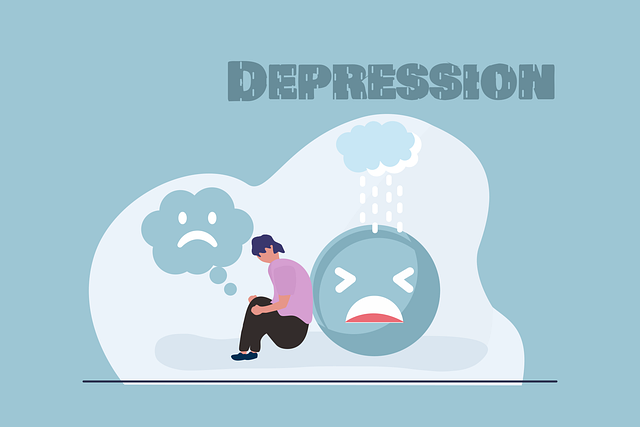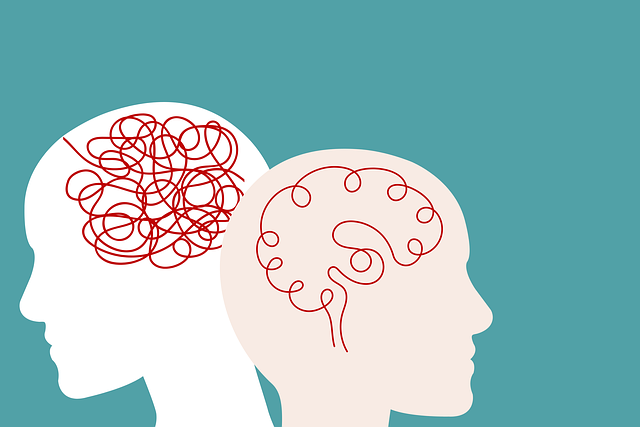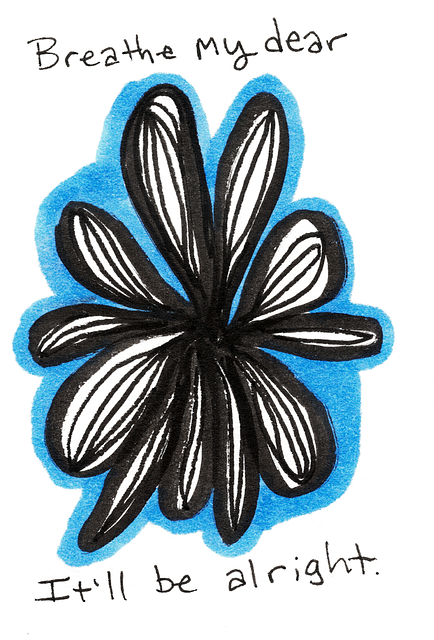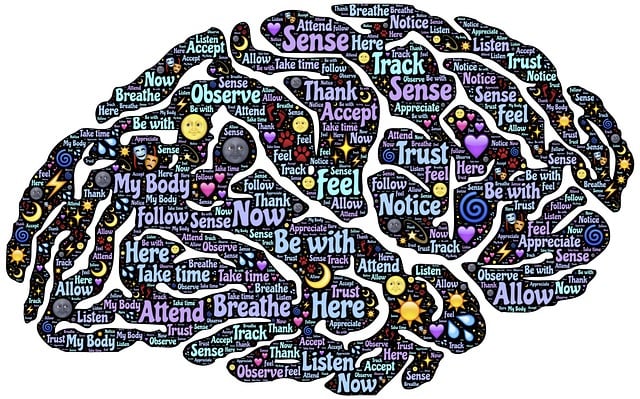Mindfulness meditation, advocated by Parker Christian Counseling Therapy (PCC), is a powerful tool for mental well-being. It helps manage stress, anxiety, and depression while enhancing focus and life satisfaction. PCC offers tailored practices with diverse techniques accessible to all populations, promoting emotional balance and resilience. Creating a home meditation space and consistent practice reduce stress, improve sleep, immune function, and overall well-being.
“Unwind your mind and embrace tranquility with mindfulness meditation, a powerful tool for cultivating mental well-being. This comprehensive guide, offered by Parker Christian Counseling Therapy, delves into the transformative practice of mindfulness, exploring its profound effects on both physical and emotional health. From understanding the basics to mastering techniques and overcoming challenges, we navigate the journey towards inner peace. Discover how creating a dedicated meditation space and consistent practice can revolutionize your mental landscape.”
- Understanding Mindfulness Meditation: A Foundation for Mental Well-being
- The Benefits of Regular Practice: Enhancing Your Physical and Emotional Health
- Setting Up Your Meditation Space: Creating a Sanctuary for Inner Peace
- Techniques and Methods: Navigating Different Mindfulness Approaches
- Overcoming Challenges: Tips for Sustaining a Consistent Meditation Routine
Understanding Mindfulness Meditation: A Foundation for Mental Well-being

Mindfulness meditation is a practice that cultivates present-moment awareness and non-judgmental attention to one’s thoughts, feelings, and bodily sensations. It’s a simple yet profound concept that forms the basis of mental well-being, as promoted by professionals at Parker Christian Counseling Therapy. By focusing on the here and now, individuals can reduce stress, anxiety, and depression, while enhancing focus and overall life satisfaction.
This ancient practice has gained modern relevance, especially in the context of risk management planning for mental health professionals. Incorporating mindfulness into therapy sessions not only benefits clients but also fosters resilience among practitioners. Moreover, cultural sensitivity in mental healthcare practice can be enhanced through mindfulness, as it encourages a deeper understanding and appreciation of diverse perspectives. Even community outreach program implementations can benefit from mindfulness techniques to improve connections and outcomes within support networks.
The Benefits of Regular Practice: Enhancing Your Physical and Emotional Health

Regular mindfulness meditation practice has been shown to significantly enhance both physical and emotional health. Through focusing on the present moment, individuals can reduce stress levels, improve sleep quality, and boost their immune system. Studies have linked consistent meditation to lower blood pressure, reduced risk of heart disease, and better overall cardiovascular health. On an emotional level, mindfulness cultivates self-awareness, helping individuals manage feelings of anxiety, depression, and anger more effectively. It encourages compassion towards oneself and others, which can lead to stronger relationships and a greater sense of well-being.
For those seeking support in navigating life’s challenges, Parker Christian Counseling Therapy offers comprehensive crisis intervention guidance alongside compassion cultivation practices. By integrating mindfulness into daily routines, individuals can develop resilience and a deeper understanding of their emotional responses. This proactive approach not only benefits current mental health but also lays the foundation for long-term wellness, allowing one to embrace life with greater clarity and peace.
Setting Up Your Meditation Space: Creating a Sanctuary for Inner Peace

Creating a dedicated space for your meditation practice is akin to setting up a sanctuary for inner peace. Consider transforming a quiet corner in your home into a tranquil retreat where you can disconnect from the chaos of daily life. Opt for a spot that allows for privacy and minimal distractions, such as a cozy corner in your bedroom or a peaceful nook in your living room. Enhance the ambiance with soft lighting, soothing scents like lavender or incense, and perhaps a comfortable cushion or chair to support your focus. This dedicated space will serve as your personal haven, facilitating deeper levels of relaxation and self-awareness exercises, especially when incorporating mindfulness meditation into your routine.
At Parker Christian Counseling Therapy, we emphasize the importance of crafting an environment that nurtures emotional intelligence and promotes anxiety relief. By setting up your meditation space with intention and care, you create a powerful tool to support your mental well-being. Imagine returning home after a long day to this serene sanctuary, where the simple act of sitting and breathing can help you regain balance and clarity. This practice is not just about quieting the mind; it’s about cultivating a consistent ritual for nurturing yourself and developing resilience through mindfulness meditation.
Techniques and Methods: Navigating Different Mindfulness Approaches

Mindfulness meditation encompasses a diverse range of techniques and approaches, catering to individual preferences and specific needs. At Parker Christian Counseling Therapy, we recognize that one-size-fits-all strategies may not be effective for everyone. Therefore, our guidance encourages exploration and adaptability. Some popular methods include mindful breathing exercises, where individuals focus on the rhythm of their inhalation and exhalation, fostering a sense of calm. Another approach involves body scan meditation, encouraging practitioners to tune into physical sensations, helping them cultivate awareness and release tension.
Additionally, mindfulness can be enhanced through focused attention practices, such as observing thoughts without judgment or following the breath’s natural flow. These techniques are valuable tools for mental health awareness and crisis intervention guidance. Healthcare provider cultural competency training also highlights the importance of tailoring mindfulness practices to diverse populations, ensuring accessibility and effectiveness across various cultural contexts.
Overcoming Challenges: Tips for Sustaining a Consistent Meditation Routine

Maintaining a consistent meditation practice can be challenging, but with dedication and the right strategies, it becomes an empowering tool for personal growth. Many individuals seeking mindfulness through Parker Christian Counseling Therapy encounter obstacles along their journey. Life’s demands, such as work pressures or family responsibilities, may easily disrupt even the most well-intentioned routines. To overcome these challenges, start by setting realistic goals; begin with shorter meditation sessions and gradually increase their duration.
Consider incorporating diverse meditation techniques, like mindfulness of breath or body scans, to keep your practice engaging. Self-Awareness Exercises play a vital role in building resilience, allowing you to navigate life’s curveballs with greater equanimity. Remember, consistency is key; even short daily practices can lead to significant Stress Reduction Methods and enhanced overall well-being over time.
Mindfulness meditation, as guided by practices like those offered at Parker Christian Counseling Therapy, is a powerful tool for enhancing mental well-being. By regularly engaging in this activity, individuals can experience significant improvements in both physical and emotional health. Through dedicated space creation and exploring various techniques, one can overcome challenges and cultivate a consistent meditation routine. Embrace these insights to embark on your journey towards inner peace and holistic well-being.














